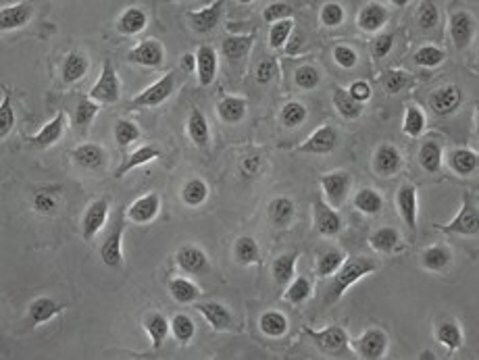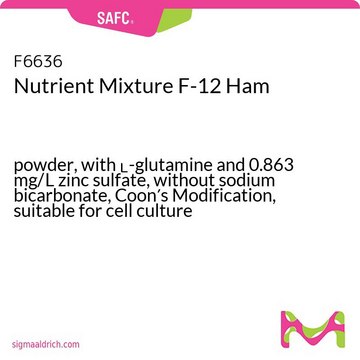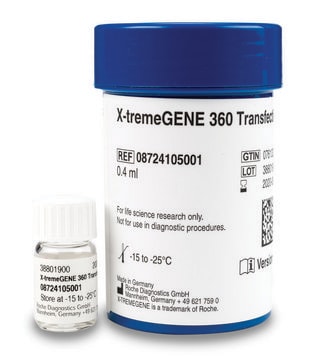H357
6092004, human mouth, Polygonal
Iniciar sesiónpara Ver la Fijación de precios por contrato y de la organización
About This Item
UNSPSC Code:
41106514
Productos recomendados
product name
H357, 06092004
biological source
human mouth
growth mode
Adherent
karyotype
Not specified
morphology
Polygonal
products
Not specified
receptors
TGFbeta type I receptor, TGFbeta II receptor, TGFbeta III receptor
technique(s)
cell culture | mammalian: suitable
relevant disease(s)
cancer
shipped in
dry ice
storage temp.
−196°C
Cell Line Origin
Human oral squamous cell carcinoma, tongue
Cell Line Description
Established from a squamous cell carcinoma (SCC) of the tongue (20mm) of a 74 year-old male patient. STNMP stage I, well differentiated, node negative tumour. Mutant p53, codon 110 exon 4, G to A; the previously reported mutant Ha-ras status of this cell line: codon: 13, G to A, codon 61, A-G is under investigation. This cell line is highly responsive to TGF (Transforming growth factor )-β and undergoes epithelial to mesenchymal transition. It expresses high levels of TGF-β1. Fahey et al (1996). Tumourigenic in athymic nude mice on subcutaneous injection and non-tumorigenic on orthotopic injection. Haplotype information: A*02,A*31; B*40,B*44; Cw*03,Cw*05
Culture Medium
DMEM:HAMS F12 (1:1) + 2mM Glutamine + 10% Foetal Bovine Serum (FBS) + 0.5 ug/ml sodium hydrocortisone succinate
Subculture Routine
Split sub-confluent cultures (70-80%), approximately every 5-6 days, 1:8 to 1:10 using 0.05% trypsin/EDTA; 5% CO2; 37°C. Suggested seeding density 5 x 1000 cells/cm2. Cells can take approximately 10 minutes to detach, an alternative is to trypsinise 2
Other Notes
Additional freight & handling charges may be applicable for Asia-Pacific shipments. Please check with your local Customer Service representative for more information.
Disclaimer
This cell line has special release conditions: Commercial organisations are required to complete the ′Cell Line Release Authorisation for Research Use in Commercial Organisations′ release conditions form.
Certificados de análisis (COA)
Busque Certificados de análisis (COA) introduciendo el número de lote del producto. Los números de lote se encuentran en la etiqueta del producto después de las palabras «Lot» o «Batch»
¿Ya tiene este producto?
Encuentre la documentación para los productos que ha comprado recientemente en la Biblioteca de documentos.
Nuestro equipo de científicos tiene experiencia en todas las áreas de investigación: Ciencias de la vida, Ciencia de los materiales, Síntesis química, Cromatografía, Analítica y muchas otras.
Póngase en contacto con el Servicio técnico



